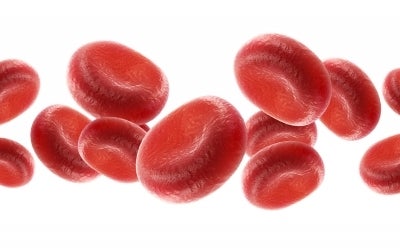Verax Biomedical, a young medical device company that makes a rapid test that screens for bacterial contamination in blood platelets, announced it has gained federal clearance to expand the use of its product.
The Marlborough company’s test, known as the Verax Platelet PGD, is already used in more than 100 hospitals around the United States, as well as a few outside the country. It was approved by the U.S. Food and Drug Administration (FDA) in 2007 and 2009 to screen two types of platelets for bacteria: single-donor platelets and whole blood-derived platelets. But now, the test can be used to screen two additional types of platelets, including pre-storage pool and apheresis platelets.
According to Joe Sanders, founder of Verax and the company’s senior vice president of business development, the different platelet types are a result of advances in medical technology that have led to more methods for deriving blood platelets for transfusion. He said the FDA recently published guidance on how to test for bacterial contamination on all available platelet types. But so far, he said, Verax has cornered the market on testing all types of platelets.
“We’re the only rapid test (maker) that has that claim,” Sanders said.
This is exciting for the company, which CEO Jim Lousararian said has recently exited startup mode, growing to 18 employees and moving its headquarters from Worcester two years ago. But Lousararian said the availability of a rapid test to detect bacteria in all platelet types is “a big deal for patient safety.”
CEO: Bacterial contamination testing falls short
Lousararian said that while blood products are effectively screened for viruses, testing for bacterial contamination falls short. He said blood is tested following transfusion, but that those screenings only detect about 25 percent of contamination cases. Those that slip through effectively “mainline this huge dose of bacteria” to patients, and that can lead to sepsis, a life-threatening bacterial infection of the blood, Lousararian said.
To make matters worse, those who are receiving platelet transfusions are often at a significant disadvantage when it comes to fending off infections: Many are cancer patients with leukemia or lymphoma, or have suffered major trauma requiring surgery, Lousararian said. All have suffered significant blood loss.
But with a rapid test like the one Verax makes, the odds of contamination can be greatly reduced. Lousararian said it works, frankly, like a home pregnancy test, using a couple drops of a platelet sample.
“If you get a line, don’t give it to a human,” he said.
Image source: Freedigitalphotos.net

